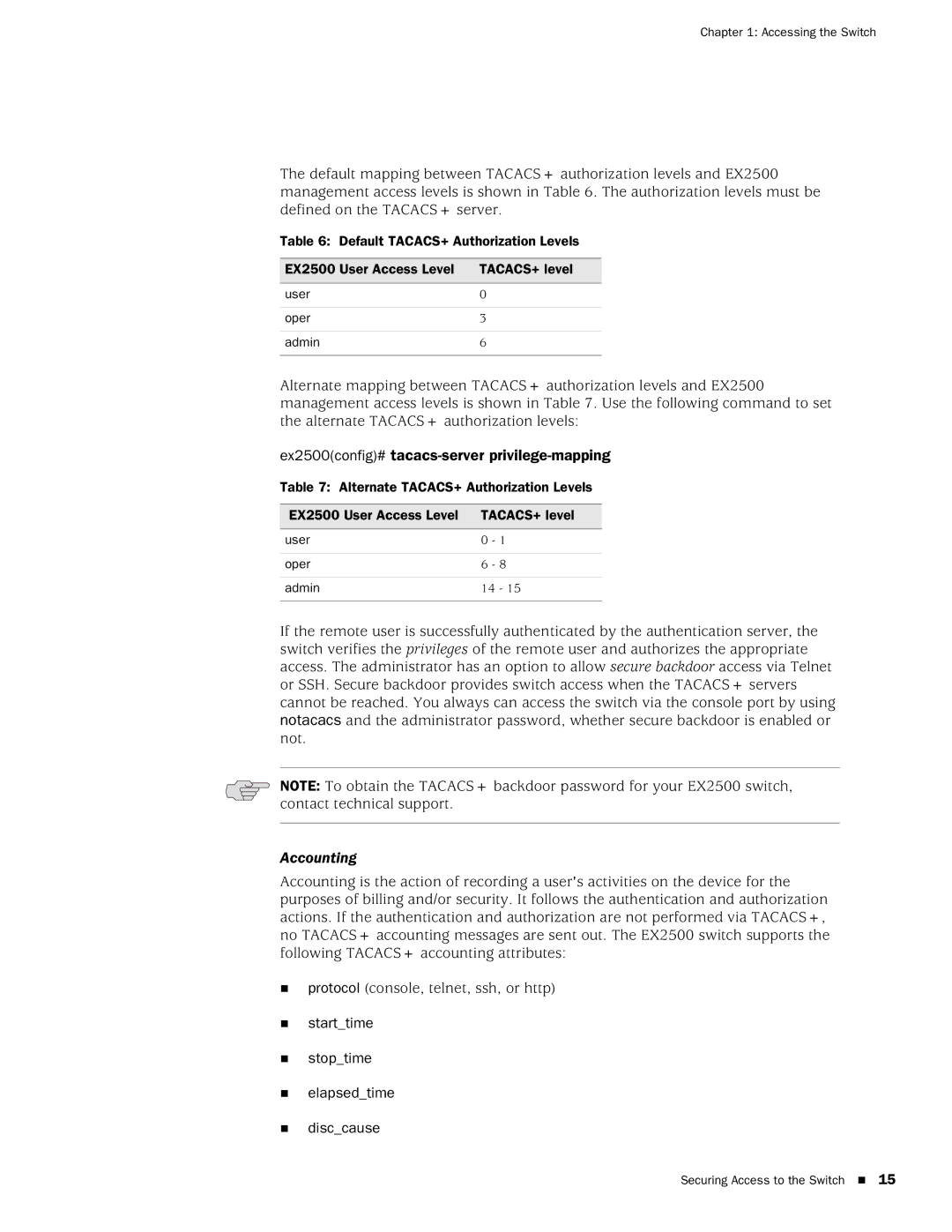Chapter 1: Accessing the Switch
The default mapping between TACACS+ authorization levels and EX2500 management access levels is shown in Table 6. The authorization levels must be defined on the TACACS+ server.
Table 6: Default TACACS+ Authorization Levels
EX2500 User Access Level | TACACS+ level |
|
|
user | 0 |
|
|
oper | 3 |
|
|
admin | 6 |
|
|
Alternate mapping between TACACS+ authorization levels and EX2500 management access levels is shown in Table 7. Use the following command to set the alternate TACACS+ authorization levels:
ex2500(config)# tacacs-server privilege-mapping
Table 7: Alternate TACACS+ Authorization Levels
EX2500 User Access Level | TACACS+ level | |
|
| |
user | 0 - 1 | |
|
|
|
oper | 6 - | 8 |
|
|
|
admin | 14 | - 15 |
|
|
|
If the remote user is successfully authenticated by the authentication server, the switch verifies the privileges of the remote user and authorizes the appropriate access. The administrator has an option to allow secure backdoor access via Telnet or SSH. Secure backdoor provides switch access when the TACACS+ servers cannot be reached. You always can access the switch via the console port by using notacacs and the administrator password, whether secure backdoor is enabled or not.
NOTE: To obtain the TACACS+ backdoor password for your EX2500 switch, contact technical support.
Accounting
Accounting is the action of recording a user's activities on the device for the purposes of billing and/or security. It follows the authentication and authorization actions. If the authentication and authorization are not performed via TACACS+, no TACACS+ accounting messages are sent out. The EX2500 switch supports the following TACACS+ accounting attributes:
protocol (console, telnet, ssh, or http)
start_time
stop_time
elapsed_time
disc_cause
Securing Access to the Switch 15
